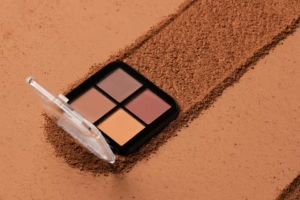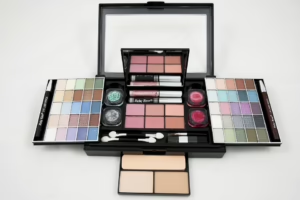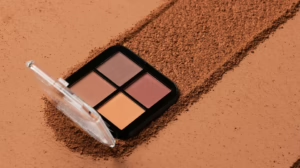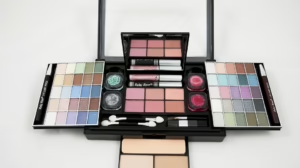Youthful Skin at Any Age: Expert Dermatology Advice
Maintaining youthful skin is a concern that transcends age. With advancements in dermatology and a deeper understanding of skin health, experts provide advice that can help individuals maintain a glowing, youthful complexion regardless of their years. Here, we explore various factors that contribute to skin vitality, the best practices for skincare, and professional treatments to consider.
Understanding Skin Aging
Skin aging is a natural biological process influenced by intrinsic (genetic) and extrinsic (environmental) factors.
-
Intrinsic Aging: This is the natural aging process that involves a gradual decrease in collagen production, changes in fat distribution, and slower cell turnover. As we age, our skin naturally becomes thinner and less elastic, leading to visible signs of aging, such as wrinkles and sagging.
-
Extrinsic Aging: This type of aging is caused by external factors, primarily UV radiation, pollution, smoking, and poor dietary habits. These elements can cause premature aging, resulting in pigmentation, rough texture, and loss of firmness.
The Role of Skincare Regimens
Basic Skincare Routine
Establishing a basic skincare routine is crucial at any age. Here are the essential steps:
-
Cleansing: Use a gentle cleanser suitable for your skin type to remove dirt, oil, and makeup without stripping your skin of its natural moisture.
-
Moisturizing: Incorporating a moisturizer helps to keep skin hydrated. Look for products containing hyaluronic acid or glycerin for optimal hydration.
-
Sun Protection: Daily use of sunscreen with a broad spectrum SPF of 30 or higher is essential to protect against UVA and UVB rays. UV exposure is one of the leading causes of skin aging.
-
Exfoliation: Regular exfoliation supports cell turnover and helps to maintain a smooth texture. Consider chemical exfoliants like AHAs and BHAs, which offer more refined results than physical scrubs.
Targeted Treatments
Antioxidants
Incorporating antioxidants into your skincare routine can help combat oxidative stress caused by free radicals. Vitamin C is particularly beneficial for brightening the skin and boosting collagen production, while Vitamin E helps with skin repair.
Retinoids
Retinoids, derivatives of Vitamin A, are renowned for their anti-aging properties. They work by promoting cell turnover and increasing collagen production, effectively reducing the appearance of fine lines and improving skin texture. It’s advisable to start with a low concentration and gradually increase usage to avoid irritation.
Peptides
Peptides are short chains of amino acids that can stimulate collagen production and improve skin elasticity. Look for serums containing peptides to support skin rejuvenation.
Lifestyle Factors
Nutrition
Diet plays a pivotal role in skin health. A balanced diet rich in antioxidants, vitamins, and minerals can significantly improve skin appearance. Key nutrients include:
- Omega-3 Fatty Acids: Found in fish, walnuts, and flaxseeds, these help to maintain the skin barrier function.
- Vitamins A, C, and E: Crucial for skin repair and protection against oxidative damage, these vitamins can be found in fruits, vegetables, and nuts.
Hydration
Drinking plenty of water is essential for maintaining skin hydration. Dehydrated skin can appear dull and more prone to wrinkles.
Sleep and Stress Management
Quality sleep allows for skin repair and regeneration. Furthermore, chronic stress can lead to various skin issues, including breakouts and premature aging. Incorporate stress-reducing activities like meditation, yoga, or regular exercise into your routine.
Professional Dermatological Treatments
As we age, over-the-counter products may not suffice. Here are some dermatological treatments to consider:
Chemical Peels
Chemical peels can exfoliate the upper layers of skin to reveal a more youthful appearance. They can help with issues like acne scars, pigmentation, and fine lines, depending on the strength of the peel used.
Microneedling
This treatment involves creating tiny punctures in the skin, prompting the body to produce collagen and elastin. It can improve skin texture, reduce wrinkles, and enhance the efficacy of topical treatments.
Laser Therapy
Laser treatments, such as fractional laser therapy, target pigmentation issues and stimulate collagen production. They can effectively treat wrinkles, age spots, and uneven skin tone.
Fillers and Botox
Injectables like hyaluronic acid fillers can restore volume to areas that have lost fat over time, while Botox can relax the muscles that cause fine lines and wrinkles. Consulting with a certified dermatologist is essential to achieve natural-looking results.
Preventive Measures
Avoiding Harmful Habits
-
Smoking: Smoking accelerates skin aging, leading to wrinkles and a dull complexion. Avoiding tobacco products can dramatically improve skin quality.
-
Excessive Alcohol Consumption: Alcohol can dehydrate the skin and impair its ability to repair itself. Moderating intake is beneficial for skin health.
Regular Dermatological Check-Ups
Annual check-ups with a dermatologist can help monitor skin health, address concerns, and catch issues early. Professional advice tailored to your skin type and concerns is invaluable.
Myths Surrounding Youthful Skin
Myth 1: “All Sunscreens Are the Same”
In reality, different sunscreens offer varying levels of protection. It’s vital to choose a sunscreen that suits your skin type and addresses your needs, such as sensitivity or acne predisposition.
Myth 2: “You Only Need Sunscreen on Sunny Days”
UV rays can penetrate clouds, and exposure can occur even on overcast days. Consistent daily sunscreen application is essential.
Myth 3: “You Can’t Change Your Skin Type”
While genetics determine skin type, factors like hormone levels, diet, and skincare practices can influence its behavior. Tailoring your routine and treatments can improve skin quality over time.
The Importance of Self-Care
Finally, the journey to youthful skin involves more than just physical treatments; it encompasses self-care practices that nourish the mind and body. Self-love and confidence can greatly influence how we perceive aging.
Engaging in activities that bring joy, maintaining meaningful relationships, and prioritizing mental health contribute to overall well-being, reflecting positively on the skin.
Conclusion
Achieving and maintaining youthful skin at any age involves a combination of proper skincare, healthy lifestyle choices, and professional guidance. Understanding the factors that influence skin aging and implementing expert advice can empower individuals to take charge of their skin health. With the right approach, it’s possible to enjoy vibrant, youthful skin for years to come.
To achieve the best results, remember that skincare is highly individual. What works for one person may not necessarily work for another. Consulting a dermatologist can help tailor an optimal skincare program suited to your unique needs.


























Add Comment